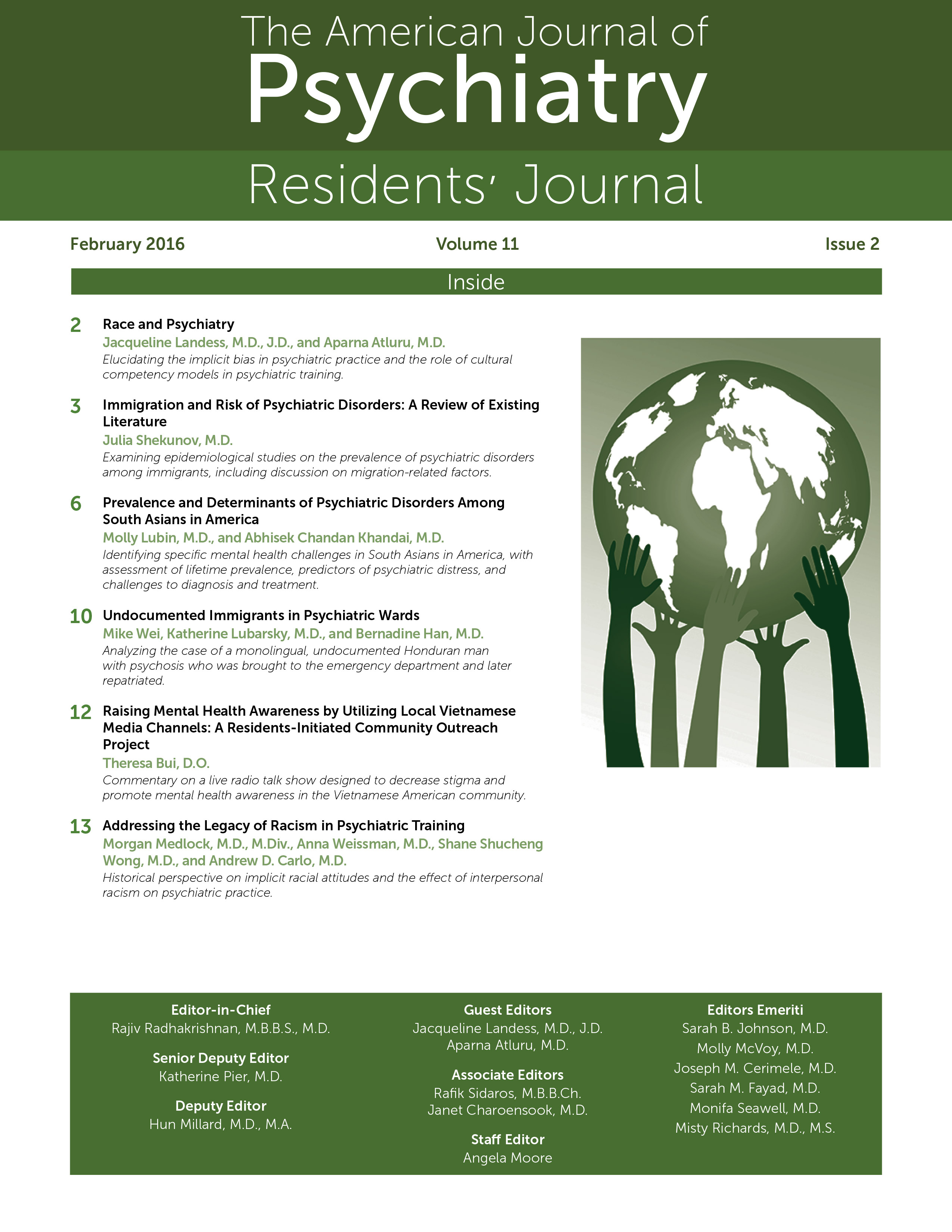There are high rates of untreated psychiatric illnesses across all ethnic groups, especially in underserved minority communities such as the Vietnamese community (
1). Vietnamese immigrated to the United States in multiple waves, and the earlier group of immigrants was older in age, exposed to more combat, and suffered more war-related traumas compared to the most recent group (
2–
4). However, even for the American-born Vietnamese youths, cultural differences, language barriers, gender roles, different rates of acculturation between family members, and changes in the family hierarchy are common factors that lead to interpersonal, as well as social, conflicts (
1,
2,
4), putting the Vietnamese community as a whole at increased risk for psychiatric illnesses such as depression, post-traumatic stress disorder, adjustment disorders, somatization disorders, and anxiety disorders (
2–
4).
Even though many Vietnamese Americans meet criteria for psychiatric disorders, only few seek treatment due to stigmas that mental illness is a sign of weakness or the result of karma due to past wrongdoings by one’s self or ancestors (
2,
4). As a result, many people suffer without timely intervention, leading to rapid deterioration in functioning and poor quality of life (
3). Even if they do seek treatment, they often face communication difficulties with treatment teams because of language barriers (
3). These problems highlight both the need to educate the Vietnamese community on how to support people with mental illness and the need to reduce barriers for those seeking or receiving treatment.
To decrease stigma and promote mental health awareness, a group of Vietnamese psychiatry residents and psychologists from three psychiatry residency programs in the Houston-Galveston area has initiated a community outreach project targeting specifically the Vietnamese community by utilizing local Vietnamese media channels. With the encouragement and support of the program directors, Sức Khoẻ Tâm Thần (Mental Health), a monthly live radio talk show on Saigon Houston 900 AM and weekly television talk show on Saigon Network Television channel 51.3, was started in July 2012 to educate the Vietnamese audience about common psychiatric conditions, encourage audience members to share their experiences with mental health issues, and provide resources such as referrals to community mental health clinics, as well as to local private psychiatrists and psychologists.
Since both media stations not only broadcast locally over the air but also live on the Internet, the messages of the program may reach far more than the 200,000 Vietnamese living in the Houston-Galveston and surrounding areas (
5). Since the television station started to post all recorded programs, including
Sức Khoẻ Tâm Thần, on YouTube approximately one year ago, the show has been receiving increasingly more questions, comments, and stories from across the nation, as well as from other countries, such as Vietnam, Germany, and Australia. The majority are referral requests (79%); 15% are questions on treatment; and 6% are negative comments against psychiatry. While these are only preliminary data, it suggests the willingness to seek help and the potential utility of more outreach programs to increase awareness and de-stigmatize mental health in a culturally sensitive fashion.
